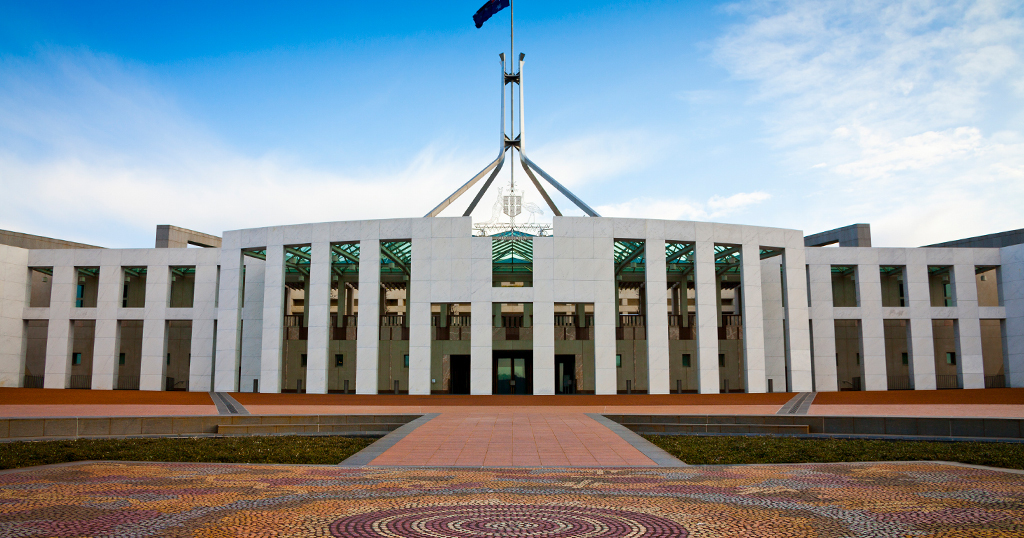
Okeydokey, there’s been some grim Australian business news pouring in throughout this April. We sorted through the chaff to collate the most newsworthy developments for the month to keep you well informed.
So, what happened in the world of business during April, and how might it affect you as a small business owner?

Business insolvencies are up over the last 24 months and will likely continue
Business insolvencies over FY2023 and FY2024 are up significantly and are set to continue until the new financial year.
A new April report from illion, which draws from ASIC data, reveals the concerning trend. Court liquidations and voluntary administration lead the charge, with year-on-year increases.

So far this financial year 20% of insolvencies were court ordered, which is up from 14% last year. This likely means that we’re seeing creditors pursuing debts more vigorously in the court system.
We’re also seeing a boost in the number of businesses restructuring and entering voluntary administration, indicating that businesses are coming to the conclusion they can’t continue in their current state and need to get proactive.
While it’s hard to parse out specifics, it seems clear that food, accommodation, and construction are the most represented industries when it comes to insolvency and restructuring.
This crisis begs the question whether Australian companies and businesses are well-equipped to handle financial and market challenges—not only to avoid insolvency, but thrive in challenging times.
As a small business owner, this growth in insolvency may serve as a wake-up call to start looking more sharply at the current and future state of business operations. It may be time for some forecasting and market analysis to see what can be done to future proof SME offerings.

$13.8 billion federal budget surplus tipped – but for how long?
Recent modelling and forecasting by Deloitte has predicted that Labor’s second federal budget will leave $13.8 billion in the coffers as surplus. The forecast for the next few budgets, however, may not be so rosy.
The surplus will be established largely due to income tax from a strong employment market and extra company taxes due to strong commodity prices. This boost has turned around the recent December budget outlook of a $1.1 billion deficit.
Yet the future outlook may be dampened by several factors, including Labor’s new ‘Made in Australia’ industry policy, which seeks to pour billions of dollars into buttressing Australia’s home-grown manufacturing industry.
While an admirable move at its face, many critics are wary of the policy which they say lacks foresight and taxpayer return on investment.
Deloitte Access Economics partner Stephen Smith commented that, “A policy that violates the largely bipartisan economic orthodoxy requires careful explanation. Indeed, any argument for the Future Made in Australia policy must surely be heavy with nuance, emphasising the complexity of balancing the aims of the policy with its obvious costs.”.
“But nuance has been sorely missing from the explanation and communication coming from the federal government.”
There are also issues with structural deficit, meaning that short term thinking may come back to sting the bottom line. With many long-term spending promises in the cards, these may in turn require higher taxes to fulfil, and a much higher chance of future deficit.
According to the AFR, “Beyond the current financial year, the outlook is increasingly bleak with spending on policies such as the National Disability Insurance Scheme, aged care, and defence all conspiring to worsen the structural deficit.”
It’s hard to argue, however, that expenditure here is not required.
Individuals and small businesses alike will be looking keenly to this year’s budget, not just to see what surplus arises, but to ascertain what’s in it for them in terms of favourable measures and incentives.
Let’s see how this plays out in the upcoming budget announcement.

Australia’s business owners urged to become more sustainable for their own good
In a multifaceted push from a variety of angles, Australia’s SME community is being urged to ditch single use plastics, do better on recycling, and boost their genuine green credentials.
Far from being an inconvenience, however, there are many upsides for businesses who do so.
Of course, depending on your state or territory, single-use plastic bans are already in place—which in turn influence supply chains. But there’s a strong push for more, from many positions.
Both consumer and employee sentiment is tipping further into sustainable territory, meaning that those businesses who drag their feet may be missing out on both employee talent and customers.
As Australian companies prepare for mandatory carbon reporting, supply chain and consumer behaviour will continue to be influenced by the push for sustainability.
From one angle, we have recent studies from COS, an Australian company specialising in product supply solutions for the workplace, which found that,
“74 per cent of respondents believe that recycling regularly is the most impactful thing they can do for the environment, and 85 per cent say that they actively engage in sustainable practices at home. However, only 70 per cent get to do so in the workplace”.
The study attributed this dip to employees being hampered by the lack of sustainable practices in Australian workplaces.
“Australia’s recycling rate currently sits stagnant at 60 per cent, but this study highlights how many employees actually want to recycle more but are lacking the tools to do so,” Belinda Lyone, Co-CEO of COS, said. “If businesses make it easy to recycle and reduce waste this figure could significantly increase and greatly benefit the planet.”
From another angle, consumer demand for action is also at an all time high. Furthermore, customers are voting with their wallets. There’s good reason that the theme for Earth Day 2024 was ‘planet vs plastics’.
According to a study into attitudes and behaviours of Australian shoppers by Monash Business School’s Australian Consumer and Retail Studies,
“The research found that more than half of Aussie shoppers (51%) say sustainability is an important factor when making a retail purchase.”
So, the data tells us it’s time for Australia’s small business community to move with the current and do what it takes to eliminate waste and boost recycling and reuse.
SMEs who do so will likely reap the rewards in terms of more positive consumer and employee sentiment.





